This blog was originally written in 2021; it was updated in January of 2024.
Responsible winter recreation in the Lake Champlain Region
So, you want to go outside this winter? Before you hit the trails or venture into the snow, it’s important to prepare for the day. That means packing the right clothes and studying the weather and conditions, among other things. Winter preparedness is serious, but that doesn't mean your adventures can't be fun! Take a look at these tips on how to make the most of winter, safely.
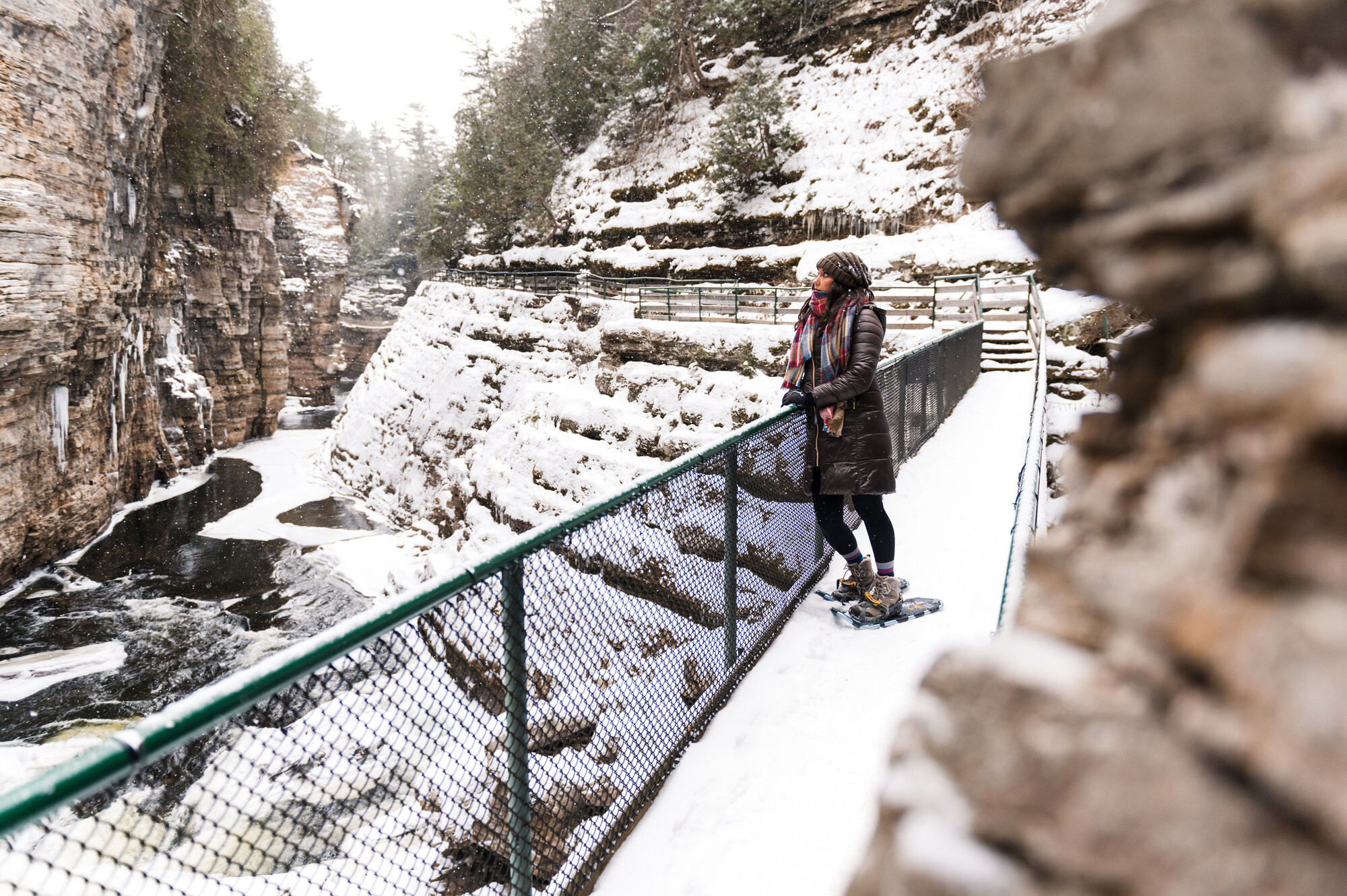
1. Know before you go
Learning what it means to be prepared for outdoor winter recreation can be tough. Knowing before you go can mean multiple things, from learning the regulations in a certain outdoor space, to knowing your limits. If you’re going on a hike, maps and guidebooks can help you understand what the terrain may be like. Cell service may be limited in certain areas, so be sure to have a reliable way to navigate.
Winter outdoor activities are also very weather dependent. For example, if you’re going ice fishing, it’s important to know ice conditions and thickness (ice 4 or more inches is generally considered enough to support a person). Lake Champlain itself is variable in its ice depth, especially in recent decades where the lake's 435 square miles of surface water fully freezes over about one in every four years. Lake Champlain can also be dangerous in adverse conditions, with high winds kicking up snow and lowering visibility, and the lowered temperatures due to the wind chill factor.
An important note for the Lake Champlain Region is that conditions can fluctuate greatly depending on location. Closer to the lake, in Crown Point or Ticonderoga, for example, winter may seem more like spring, with milder temperatures and less snow. But in the peaks surrounding Elizabethtown or Poke-O-Moonshine Mountain, conditions may be similar to those seen in the High Peaks, with deeper snow.
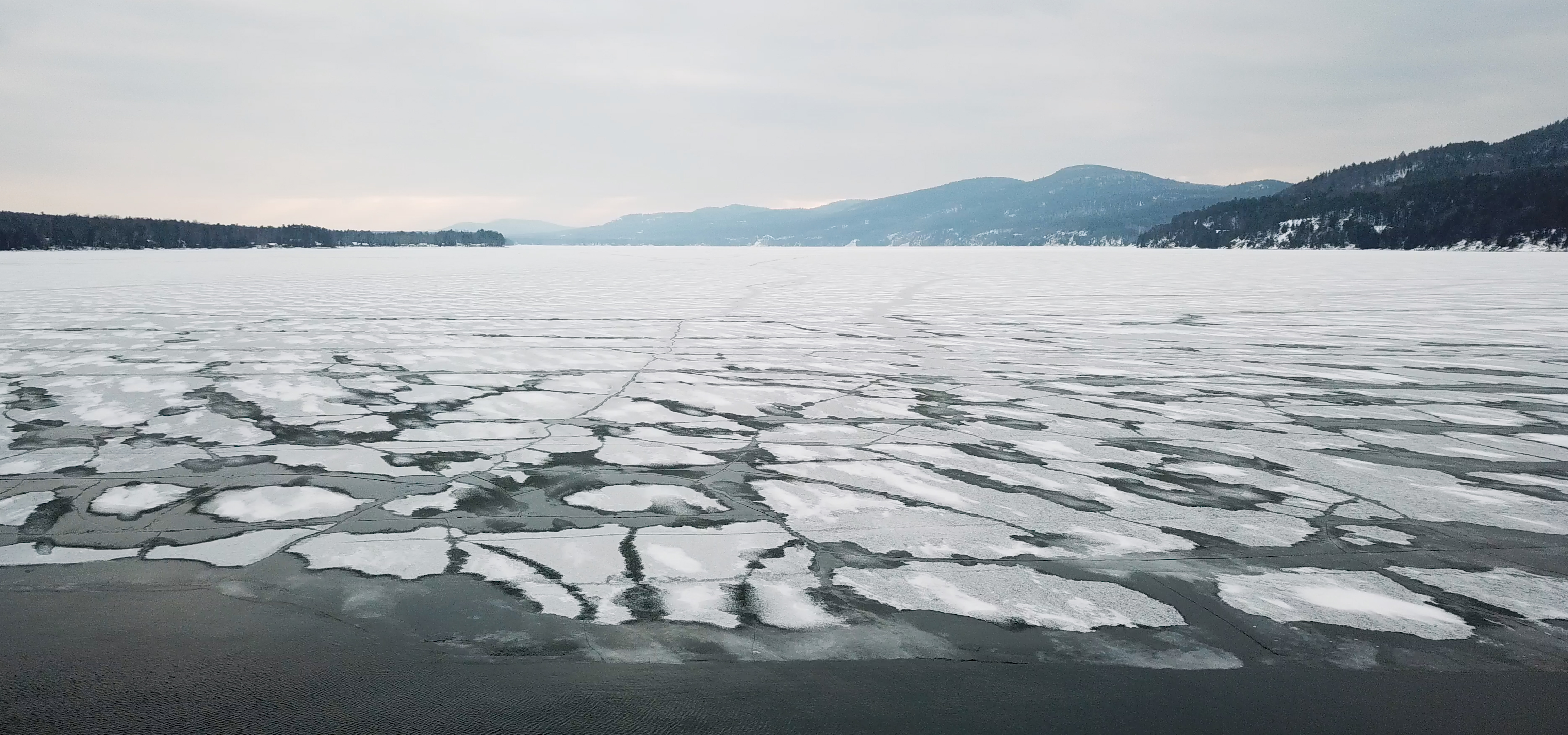
2. Expect the unexpected
Falling in line with preparation, it’s also a good idea to expect the unexpected. If you’re snowshoeing or cross-country skiing, it’s good to prepare for an unplanned night in the woods in case there is an emergency. Of course, no one welcomes unplanned overnights, but they can happen. Be sure to include the 10 Essentials in your pack, including extra layers, a warm sleeping bag, and sleeping mat. You never know if you’ll need them. Plus, if you want to take a break and sit down for a minute, a sleeping mat can make a good seat so you aren’t sitting right in the snow.
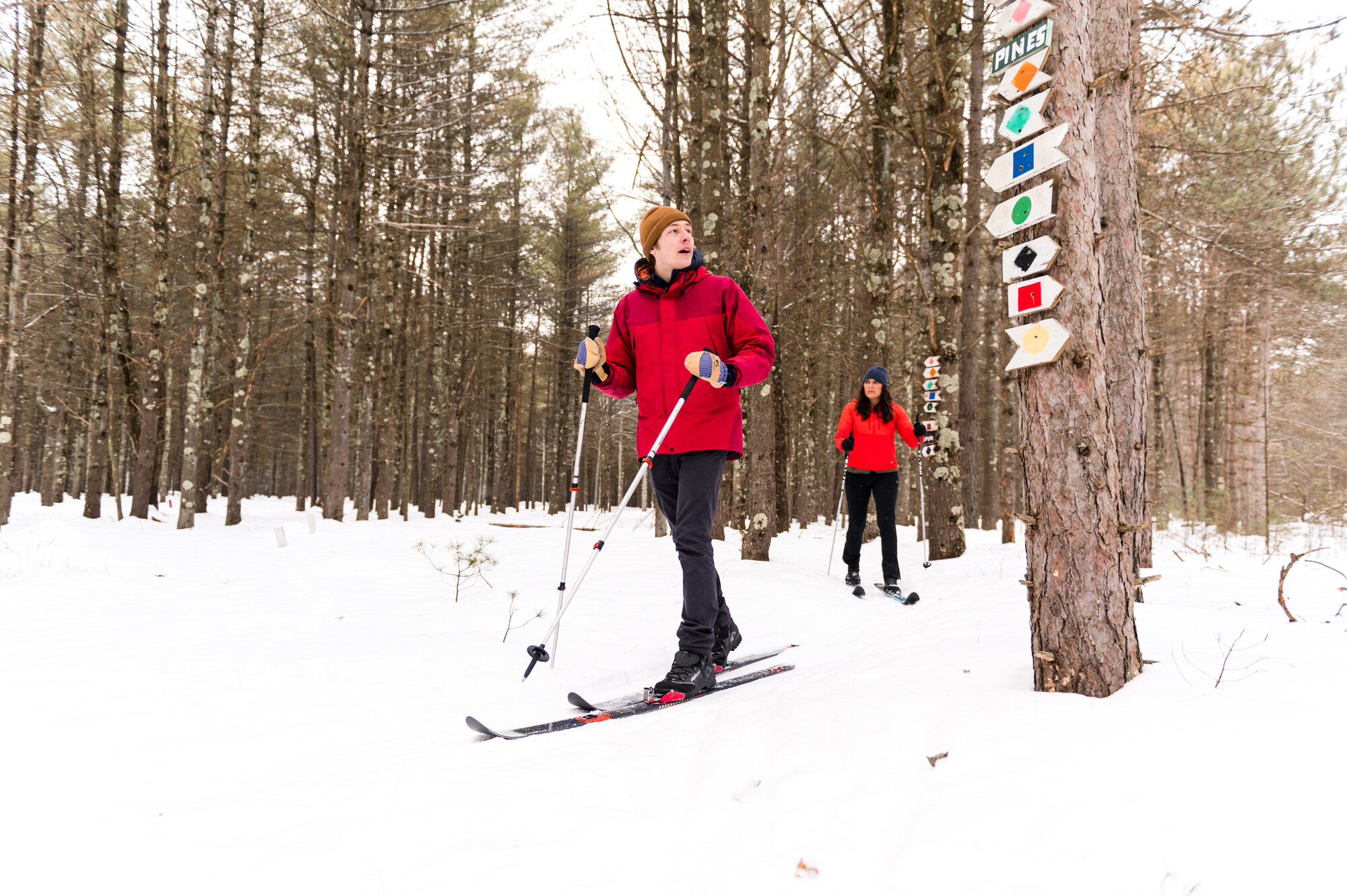
3. Know the signs
Hypothermia is a medical condition that occurs when your body loses heat faster than it can produce heat. This causes low body temperature, which can lead to a very serious medical emergency. It’s possible to become hypothermic in any season, but the risk increases in winter, as you can be exposed to colder temperatures for long periods of time. Keep a watchful eye on yourself and your group for these signs and symptoms: severe shivering, dizziness, confusion, slurred speech, and exhaustion.
Frostbite can also occur in winter when exposed to the cold. Frostbite is when you’re exposed to extreme cold and skin and underlying tissue is damaged. Fingers, nose, toes, ears, and cheeks are the most common areas for frostbite and symptoms can include: tingling, numbness, itching, burning, and cold sensations.
If you or someone in your group shows signs of either hypothermia or frostbite, remove any wet clothing and protect them from further heat loss with dry blankets and/or clothes, and stay out of the wind. For more information, consult your doctor.
4. Be considerate and be respectful
Being considerate and respectful extends to both other people and the natural environment. We’re all sharing the outdoors. If there’s a thaw, don’t avoid the mud; stay on the snow or walk in the middle of the trail to avoid trail erosion and possibly damaging trailside plants. Be kind to wildlife. Share the trail with others: yield to uphill traffic and separate ski and snowshoe tracks if possible. Most importantly, follow all local regulations, including those involving pets. We all love taking our dogs on walks and they sure do love playing in the snow, but not everyone is comfortable around unleashed dogs. Please keep animals in control.
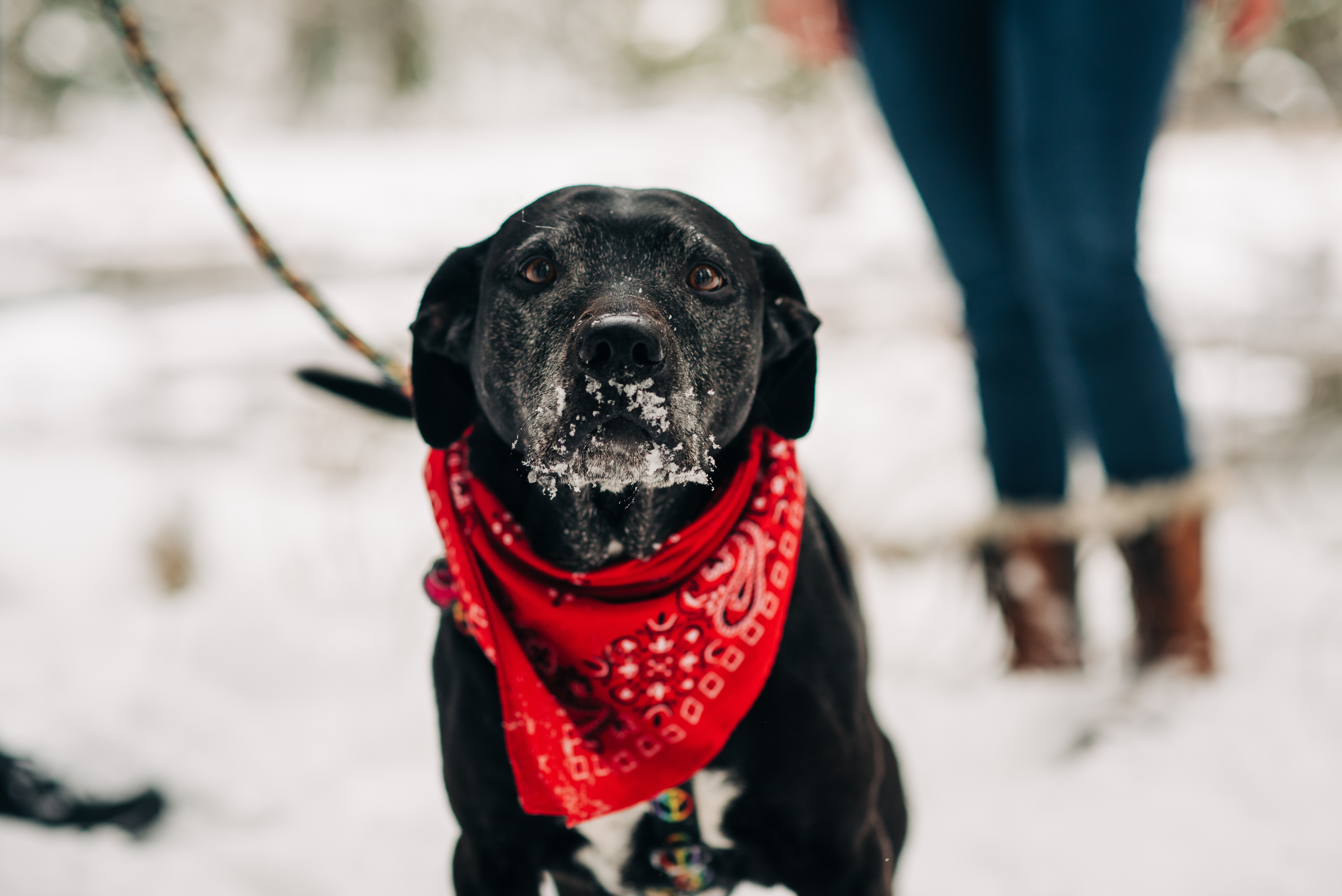
5. Waste not
Are you familiar with the phrase “do your duty”? We want to encourage you to do your duty and pack out waste. Yes, that means poop (yours and your dogs) and any trash you collect. It’s important to help ensure everyone has the opportunity to have a great experience outdoors this winter without having to look at other people’s waste.
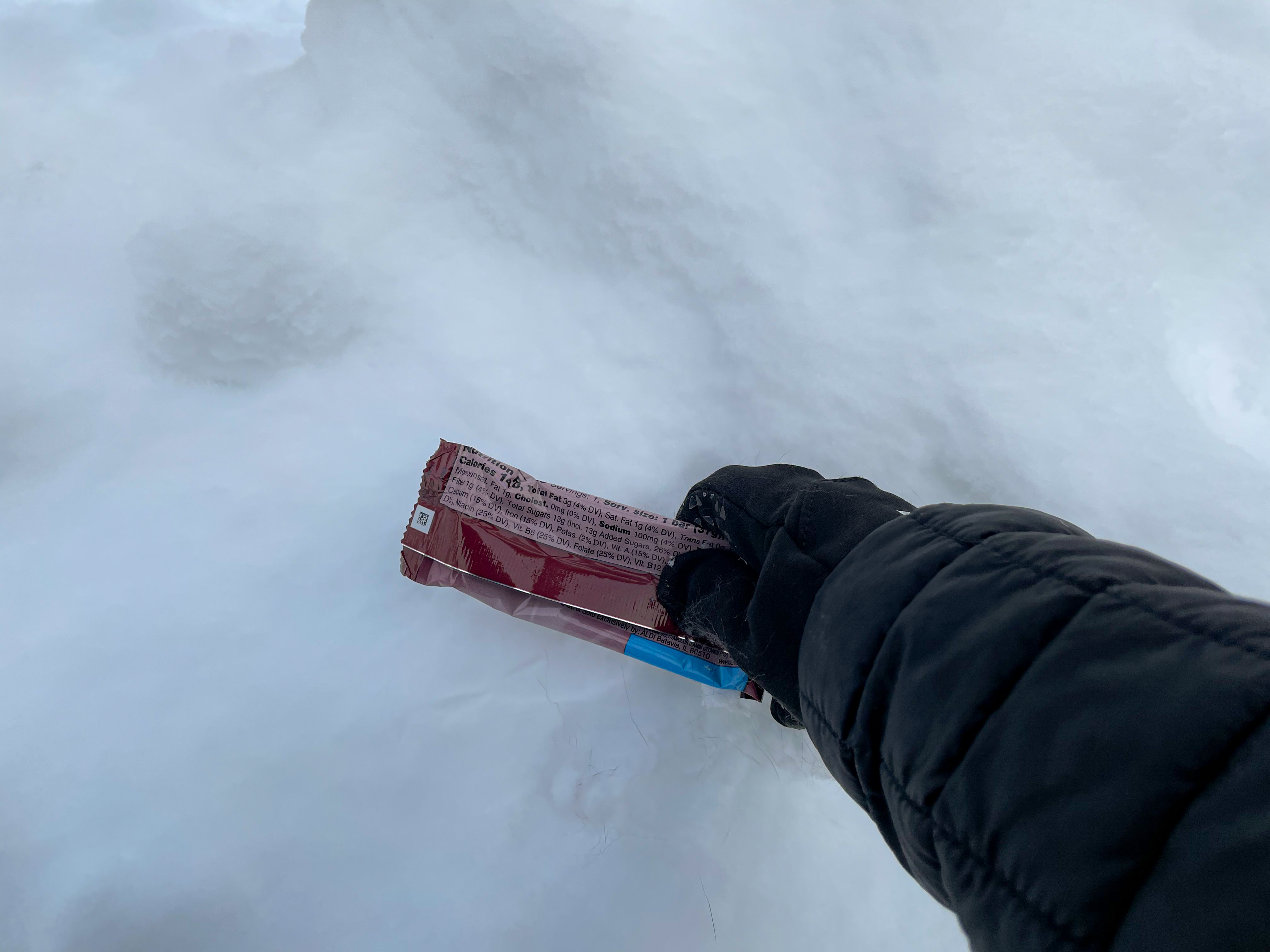
Love Your ADK
If you plan on exploring outdoors this winter - whether it’s climbing a mountain, skiing along Lake Champlain, or snowshoeing to an incredible view, be sure to pledge to Love Your ADK. This pledge is based on the seven Leave No Trace principles and acknowledges your commitment to leave the Adirondacks a better place than you found them. Take the pledge today!
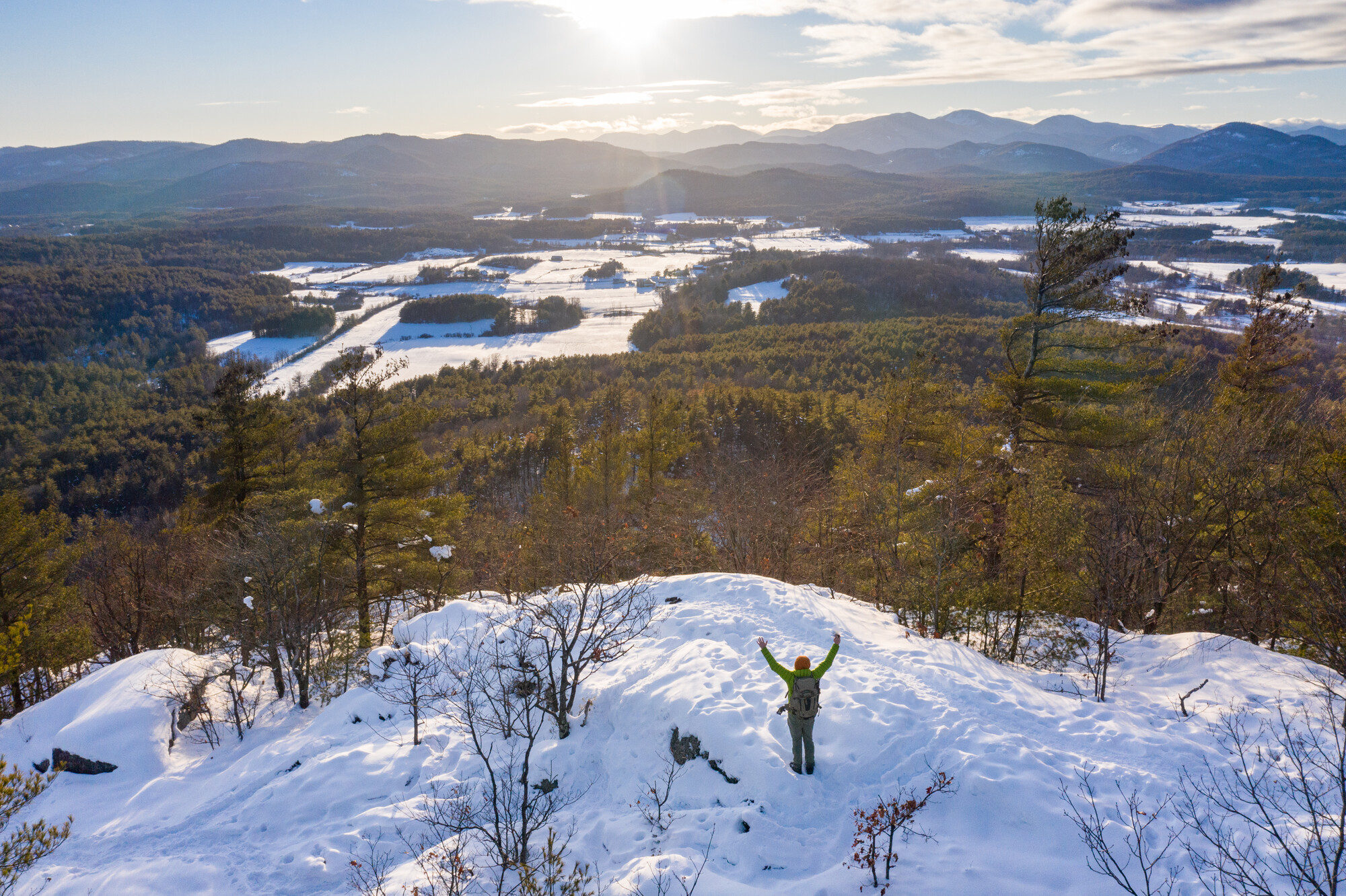
Whatever your adventure in the Lake Champlain Region is this winter, we hope that it’s filled with lots of fun, epic memories, and hopefully some good food along the way. (No day is complete without a snack or two.) Remember, if you choose not to find joy in the snow, you will have less joy in your life, but still the same amount of snow. Enjoy winter, safely!












